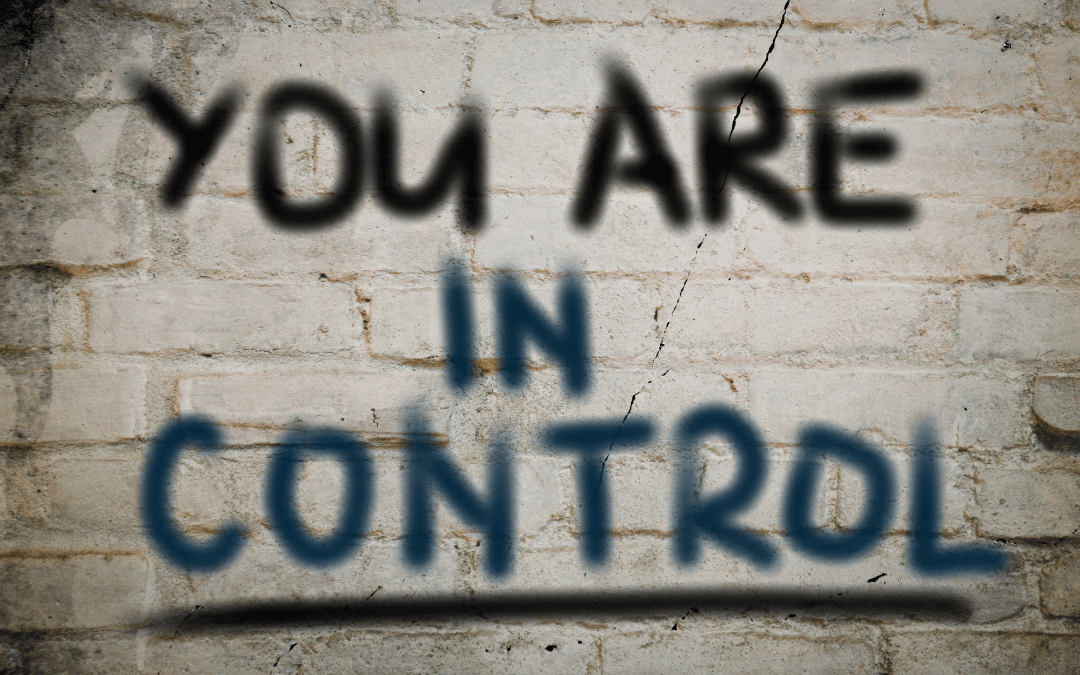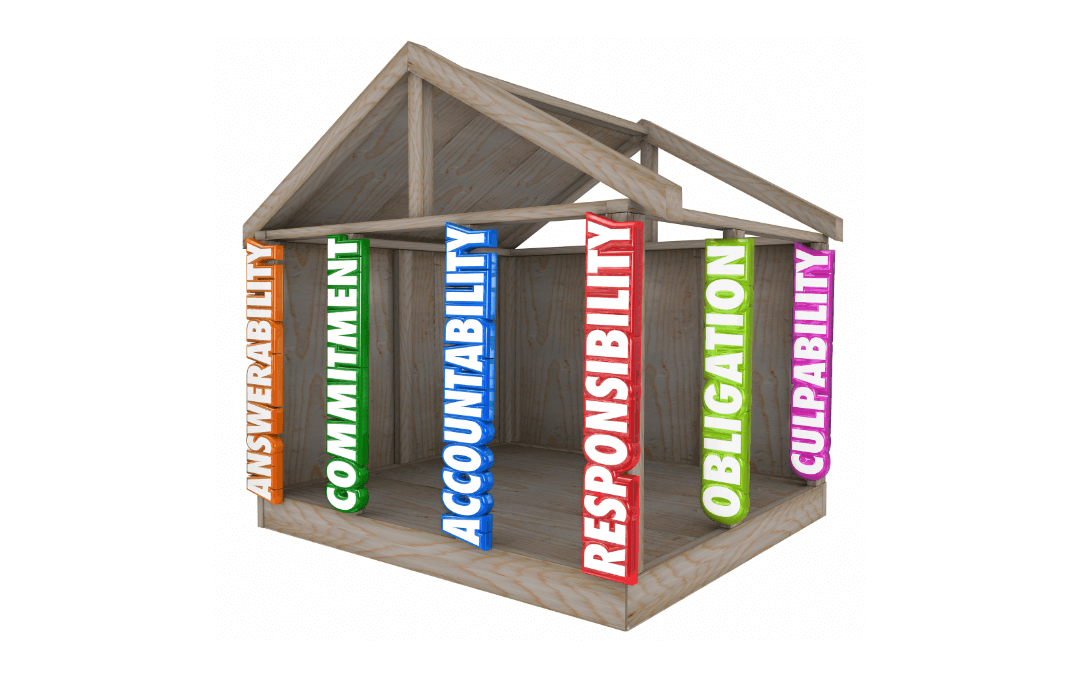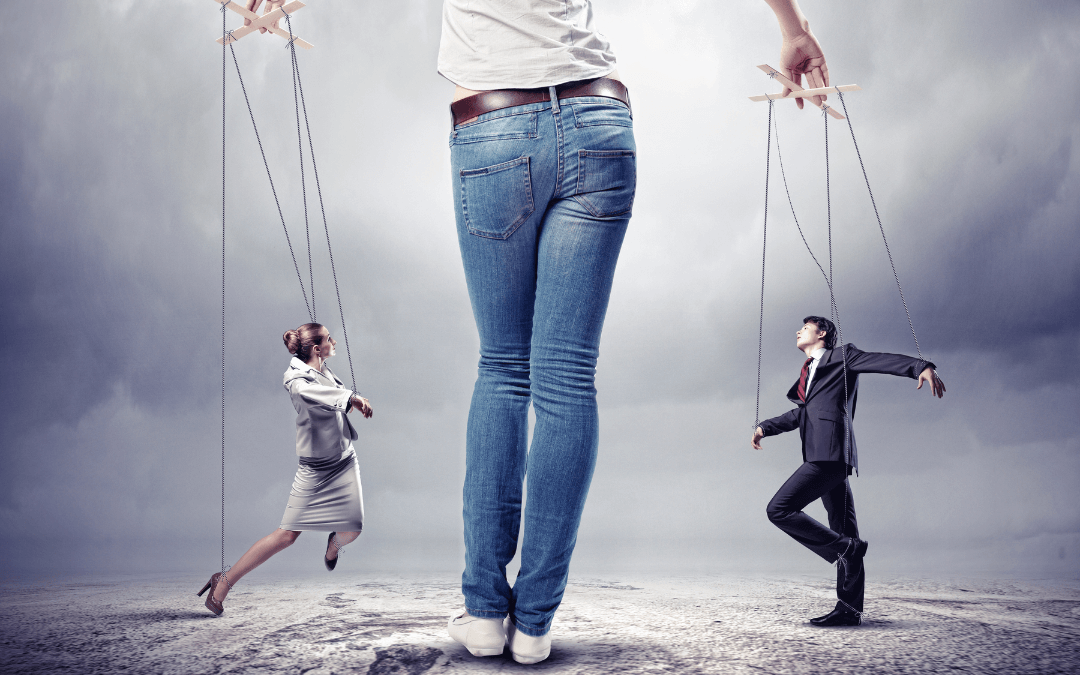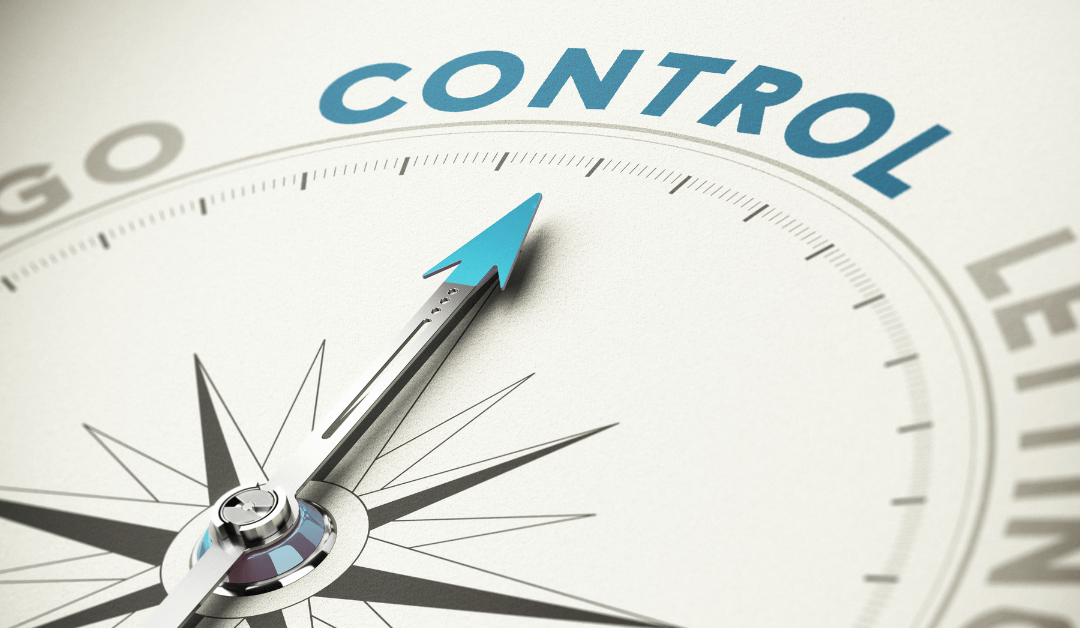Our need to control ourselves and others is a learned response to fear. Emotions trigger chemical chain reactions in our bodies to prepare us for specific actions. When these actions work out, meaning they help us survive or improve our situation, our brain remembers the emotion-action pair for the next time.
The more this switch is flipped, the faster we react. Some of our reactions evolved for millennia, like the freeze or flight response when we see a snake. Other emotion-action pairs are fairly recent. The need to take control of ourselves and others is one of them.
As societies became more individualistic, we learned new beliefs about ourselves and our world. While we grow up, we learn techniques to act on these beliefs. Control and how most of us enforce it is one of these techniques. It is a coping mechanism for fear.
“You are in control”
One of the core beliefs many of us have drilled into us from an early age on is that we are in control of our life. We are responsible for our actions and decisions, meaning the people around us make sure that both have consequences.
Stock is taken and judgement is passed. Parents, teachers, friends, even strangers on the internet react to us either positively or negatively. That’s how we learn what kind of behaviour is acceptable and what isn’t. Being responsible is a key value. Taking responsibility is often rewarded. Those who refuse it or blame others are secretly or openly despised.
We are even taught that the mind should triumph over matter. Most people think it means that our conscious mind has complete control of our bodies. If you ever had to make a run for the bathroom, you may already have your doubts about this one.

Out of our control
It’s not just our bladders that refuse to bend to our will. Every day we deal with events, people and physical reactions that are out of our control. I cannot control the weather at all. Other people pretty much do what they think is right. Companies change their policies, as do governments, without my input. That’s just how it is.
And that’s the problem. A belief is a thought we keep thinking. We are taught to believe that we are in complete control of our lives. When life constantly proves to us that this is not true, we experience cognitive dissonance, meaning we feel uncomfortable emotions, ranging from low level anger and fear to severe anxiety and even rage.
The perfectly normal reaction to cognitive dissonance is to change our behaviour so we can prove to ourselves that our belief is true after all. In other words, we try to control ourselves, others and even the circumstances surrounding us.
Fear takes over
When we try to control everything we are guaranteed to fail, which stresses us out or scares us. We are afraid of failure, of being judged, held accountable and even culpable when things go wrong. The more unwanted events happen, the more fear we feel and the more we try to take control. If we are blamed for things we know are not our fault, we might even feel powerless.
Powerlessness is one of the scariest feelings we have. Our societies teach us that action is everything. So reminding ourselves that somet things are out of our control, scares us too. If they are, there’s nothing we can do. Unacceptable in a “can do” world. More cognitive dissonance, more fear, more need to take control.
Over time, this cycle becomes a habit. That’s when we – or others – begin labelling ourselves as controlling. The emotion-action cycle speeds up and before we know it even a slightly derailed plan gives us a panic attack. The reaction is proportionate and we might “freak out”, meaning anger takes over to empower us.

Controlling yourself
We are often the first victims of overzealous bursts into activity. We control our lives as much as we can. Some schedule every minute of their day, others set random limits on their food intake or choose difficult to impossible fitness goals. Most of us limit the time we allow for rest. Work, work, work. Action, action, action. It does not even matter what actions we take. As long as we keep going, we feel in control.
Since mind is supposed to triumph over matter, our emotions are another favourite target. We suppress and ignore them. Natural expressions of emotions that would offer relief, like crying, are out of the question.
Because emotions are automatic reactions to events in our lives, we find ways to numb them instead. Doom-scrolling, compulsively checking e-mails, eating too much or too little, binge watching even though the show stopped being fun several episodes ago are coping mechanisms to avoid our emotions.
Why did we develop these mechanisms? Why don’t we just feel our emotions for two minutes and release them safely? Because most of us never learned this particular Emotional Intelligence Skill. The unhealthy coping mechanisms, on the other hand, are socially acceptable reactions and soothe us because they fit our belief that we are in complete control of our lives.
Other people
When we are done with ourselves, we often turn to others. “We are in complete control of our lives” implies that we also have some ways and means to control others. This is not true. We can manage, manipulate and even punish others until they pretend to do what we want them to do, but we never really control anyone.
We only ever try because we believe we are responsible for outcomes. Why do we think that? Because we are held accountable for outcomes until we draw the conclusion that controlling others is the only way to guarantee wanted results. So we treat them the way we treat ourselves.

Puppets on a string?
Does the image with two people on strings seem extreme to you? Yet, deep down that is what we think we should be doing. A while ago, I posted a poll on LinkedIn, asking which Emotional Intelligence Skill people would be most interested in learning. To my utter surprise the big winner was “managing emotions in others.”
It makes sense, of course. We interact with other people every day. Most of us have to work with others. If you have ever had a boss who would take out their anger on you, you might have felt helpless. If you have ever been blamed for mistakes your colleagues made, you might still feel angry about that.
What’s the reaction we were taught to have when we feel uncomfortable emotion? Taking control. Have you been waiting for the post on how to manage other people’s emotions or have you taken management classes and attended courses? I understand.
There is a lot of information on this subject out there. Courses, classes, videos, posts and other types of content, all sharing tips, tricks and techniques. Why? Because they all believe and perpetuate the same premise: Once we control others, everything will just work out perfectly so we never have to feel those pesky uncomfortable emotions again.
Uncontrollable
Here’s are a few truths though: You cannot control others or circumstances. You will always experience uncomfortable emotions because they are key to a healthy and happy life. And most importantly, you are not responsible for other people. Their actions, thoughts and emotions are none of your business.
But you can manage your own emotions and reactions and in doing so, create your reality. The fear of rejection and being judged, the fear that turns a feedback conversation with your boss into a dreaded nightmare, or the anger when people “let you down” are all perfectly within your control.
What about that crushing weight of responsibility, the stress that slows you down, or the overwhelm that clouds your mind? All of these emotions and feelings are manageable and even avoidable once you focus on what you do have control over: your reactions and daily habits.

Real control
Your emotions are automatic. Your feelings are learned. Chances are how you feel every day has even become a habit. But by learning the two most important Emotional Intelligence Skills self-awareness and emotional hygiene, any habit can be replaced with a more useful one.
We are taught that we can control our lives and then left to our own devices to come up with techniques on how to do that. We learn from the people who have come before. If you developed unhelpful habits over time, that’s just normal. You didn’t know any better. Neither did I up until a few years ago.
But I am here now to share another way and since you’ve read this far, I know you are ready to give it a try. Take a deep breath. Shrug off the weight of the world. You were never responsible for it anyway. Pick an emotional hygiene technique that sounds fun and start practising. Notice how you feel while you’re doing it. And just like that you are taking control of your life.
